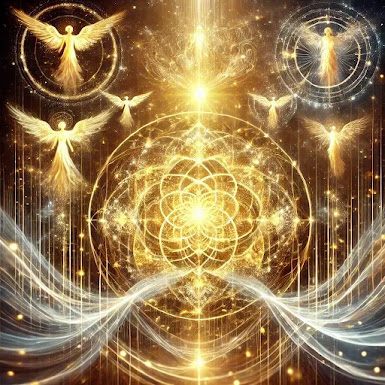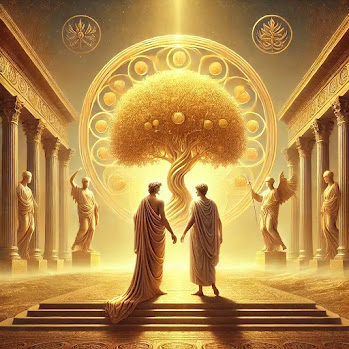Friendship stands as one of the most profound and essential aspects of human life. According to Cicero in Laelius de Amicitia, friendship is not a product of mere convenience but a reflection of shared virtue and moral excellence. It is, as Cicero describes, “a relation absolutely indispensable” to the human experience (86). Through his dialogue, Cicero delineates the principles, challenges, and transcendent nature of true friendship, offering insights that resonate across centuries.
Friendship and Honor: The First Law
Cicero establishes honor as the cornerstone of true friendship. He argues, “Ask of friends only what is honorable; do for friends only what is honorable and without even waiting to be asked” (44). In this ideal, there is no place for deceit or dishonor. A genuine friend does not demand wrongful acts nor succumbs to ignoble requests. Instead, friends inspire each other to act with integrity, exemplifying moral courage even in difficult times.
Cicero emphasizes that loyalty and honesty are paramount. True friendship, he asserts, “cannot exist except among good men” (65). Such friendships are forged on the shared pursuit of virtue, where trust and mutual respect are never compromised.
The role of Virtue in Friendship
At the heart of Cicero’s philosophy is the belief that virtue creates and sustains true friendship. He writes, “Virtue, I say, both creates the bond of friendship and preserves it” (100). Virtue fosters harmony, fidelity, and permanence, enabling friends to support and elevate one another. For Cicero, the joy of friendship lies in its intrinsic value rather than any material benefits it may bring: “It is not the case, therefore, that friendship attends upon advantage, but, on the contrary, that advantage attends upon friendship” (51).
This view challenges the utilitarian notion of friendship as a means to an end. Cicero warns that those who see friends as mere tools for personal gain, much like cattle, fail to grasp the true essence of friendship (79). Instead, the purest friendships arise from mutual admiration and love, untouched by selfish motives.
The challenges of Loyalty
Loyalty is a recurring theme in Cicero’s discourse, as he considers it the bedrock of steadfast friendships. He observes, “Most men are convicted of fickleness: they either hold a friend of little value when their own affairs are prosperous, or they abandon him when his are adverse” (64). In adversity, the faithful friend proves their worth, while the unfaithful one reveals their true character.
Cicero extols unwavering loyalty as a divine quality, stating, “Whoever … has shown himself staunch, immovable, and firm in friendship ought to be considered to belong to that class of men which is exceedingly rare — aye, almost divine” (64).
To nurture loyalty, Cicero advises against suspicion and gossip, warning, “A friend must neither take pleasure in bringing charges against you nor believe them when made by others” (65). Loyalty is further strengthened by transparency, kindness, and shared understanding.
Old friendships and new bonds
While Cicero celebrates the value of long-standing friendships, comparing them to well-aged wine, he also recognizes the potential in new relationships. He states, “The oldest friendships ought to be the most delightful” but adds, “New friendships are not to be scorned if they offer hope of bearing fruit” (67-68).
Nevertheless, he cautions against abandoning the richness of old bonds for the allure of novelty. Habit and time deepen the connection between friends, making older friendships particularly resilient and rewarding.
Honest advice: The pillar of Friendship
One of the defining characteristics of true friendship, according to Cicero, is the ability to give and receive honest advice. He asserts, “It is characteristic of true friendship both to give and to receive advice … to give it with all freedom of speech, but without harshness, and to receive it patiently, but without resentment” (91).
Cicero warns against flattery, which he brands as the vice of insincere and fickle individuals: “Flattery … deserves to be branded as a vice peculiar to fickle and false-hearted men who say everything with a view to pleasure and nothing with a view to truth” (91). While candor may occasionally lead to discomfort, it ensures the integrity of the friendship.
The Universal Need for Friendship
For Cicero, friendship fulfills a profound and universal human need. He writes, “Nature, loving nothing solitary, always strives for some sort of support, and man’s best support is a very dear friend” (88). Friendship enriches every aspect of life, offering companionship and solace even in the most challenging circumstances.
Reflecting on human nature, Cicero asserts that even the most isolated individuals, like the misanthropic Timon of Athens, require someone to share their thoughts and emotions. He illustrates this point with a vivid metaphor: “If a man should ascend alone into heaven and behold clearly the structure of the universe … there would be no pleasure for him in the awe-inspiring sight, which would have filled him with delight if he had had someone to whom he could describe what he had seen” (88).
Conclusion: Friendship as a Divine Connection
In Cicero’s vision, friendship is more than a relationship—it is a reflection of humanity’s highest virtues. He concludes, “Love is nothing other than the great esteem and affection felt for him who inspires that sentiment, and it is not sought because of material need or for the sake of material gain” (100).
True friendship, forged in virtue and sustained by loyalty, is both a gift and a responsibility. It is an enduring bond that enriches the soul, elevates the spirit, and brings profound joy to life. As Cicero eloquently states, “Without friendship, life is no life at all” (86).
References:
Cicero. Laelius De Amicitia. Published in the Loeb Classical Library, 1923.










